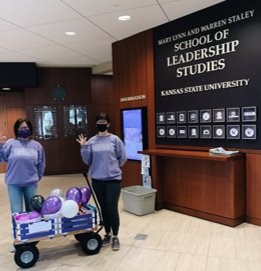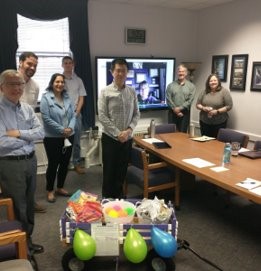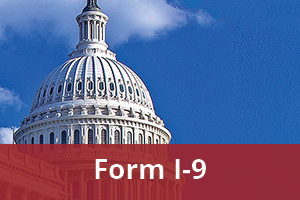by CUPA-HR | September 7, 2022
Each month, CUPA-HR General Counsel Ira Shepard provides an overview of several labor and employment law cases and regulatory actions with implications for the higher ed workplace. Here’s the latest from Ira.
University Football Coach’s First Amendment Retaliatory Discharge Claim For Posting “All Lives Matter” Sign On His Office Door Proceeds
A federal district court judge recently denied a University of Illinois motion to dismiss its former offensive coordinator’s claim that his retaliatory termination was in violation of his First Amendment rights by posting a handwritten note on his office door stating “All lives matter to our lord and savior Jesus Christ.” The federal judge ruled that the former coach was not acting within his official duties when he posted the note. The judge concluded that the plaintiff was not paid by the university to decorate his office door, but rather was paid to coach football. Therefore, the note expressed his personal views (Beathard v. Lyons (C.D. Ill,. No, 21-cv-01352, 8/11/22)).
The court ruled that it is premature to decide whether the university can justify the termination because “there is not enough information to properly weigh” the interests of the university against that of the public employee in this matter. The plaintiff alleges that someone posted a general statement without his permission that supported Black athletes at the university in the wake of George Floyd’s death. He claims to have taken down the note and posted his own handwritten note. According to the complaint, his note upset some players who boycotted practice. CUPA-HR will follow developments in this case.
Federal Appellate Court Holds That Gender Dysphoria Is a Disability Covered Under the ADA
The Fourth Circuit Court of Appeals (covering Maryland, Virginia, West Virginia, North Carolina and South Carolina) recently became the first federal appellate court to rule that gender dysphoria is a disability covered under the Americans with Disabilities Act (ADA). The 33-page majority decision was accompanied by a 21-page dissent. The appellate panel ruled 2-to-1 that gender dysphoria is covered under the ADA (Williams v. Kincaid (4th Cir. 21-2030. 8/16/22)).
The ADA contains a statutory provision excluding gender identity disorders from coverage under the ADA. The appellate court noted that the American Psychiatric Association (APA) removed gender identity disorders from its diagnostic manual nearly a decade ago. Gender identity disorders had referred to a condition of identifying as a different gender. The APA replaced the gender identity disorder diagnosis with the more modern diagnosis of gender dysphoria. Gender dysphoria is currently contained in the APA’s diagnostic manual and is a “clinically significant distress or impairment related to a strong desire to be another gender.” The APA says that the condition can interfere with an individual’s social life, their ability to do their job and other daily functions.
The appellate court concluded that the “plain meaning” of the ADA’s exclusion of gender identity disorders as “it was understood at the time of enactment” does not then or now exclude gender dysphoria from ADA coverage. The court concluded that “the obsolete definition focused on cross gender identification; the modern one on clinically significant distress.” The dissent disagreed stating that “Judicially modifying the meaning of a statute because of society’s changing attitudes not only invades the province reserved for legislature, it turns the statute into a moving target.”
Transgender Class Against the State of West Virginia Alleging State’s Denial of Gender-Affirming Care Violates Obama Care Statute Prevails in Trial Court
A class of more than 600 transgender Medicaid participants prevailed in federal court against the state of West Virginia where a federal judge held that the state’s denial of gender-affirming care violated the federal anti-discrimination provisions of the Obama Care statute and the U.S. Constitution (Fain et al v. Crouch et al (3:20- cv-00740 S.D. W.Va.. 8/2/22)). The case may have applicability to other state medical and health plans.
The court recognized that often the same procedure is used to treat a variety of cases and it is unlawfully discriminatory to deny transgender patients similar treatment given to non-transgender patients.
Court of Appeals Approves NLRB Order for Private Employer to Pay Union Legal Fees Incurred in Collective Bargaining Process
In a case applicable to private colleges and universities which are subject to National Labor Relations Board (NLRB) jurisdiction, the U.S. Court of Appeals for the Ninth Circuit (covering California, Oregon, Washington, Montana, Idaho, Nevada and Arizona) affirmed an NLRB decision ordering an employer to pay its union’s legal fees incurred in the collective bargaining process (NLRB v. Ampersand Publishing (9th Cir. No. 21-71060, 8/11/22)).
The Ninth Circuit concluded that although the NLRB lacks jurisdiction to award attorney fees as a remedy in the litigation context, it is fully within their authority to award such a remedy in the collective bargaining context. In this case, the union filed unfair labor practice charges alleging the employer’s refusal to bargain. The union claimed it had to incur extra attorney fees as part of the bargaining process because of the employers violation. The court rejected the employer’s argument that the legal fees were akin to litigation costs because of the unfair labor practice charges filed with the NLRB. The NLRB disagreed and attributed the attorney fees of $42,000 to the collective bargaining process. The case involved the Santa Barbara News Press as the employer and a local teamster affiliate that has incurred the legal fees.
IRS Initiates Pilot Program Allowing Workplace Employee Benefit Plans to Correct Errors Before Formal Audits Commence
Under a new pilot program, the Internal Revenue Service (IRS) will allow workplace benefit plans to correct errors before investigators formally commence an audit. As part of a new pilot project, about 100 U.S. workplace benefit plans, including retirement plans, have received letters from the IRS since June allowing selected plans a 90-day window to correct mistakes in plan design, administration or documentation before regulators launch formal audits or close out case files.
Self-identified corrections of this sort are not new to the IRS, however, before this pilot they were only available to employers who had not been targeted by an audit.
Federal Judge Blocks Florida Workplace Bias Training Restrictions
A federal district court judge approved a preliminary injunction barring the enforcement of a Florida statute which restricts workplace bias training from teaching about unconscious bias. The Florida statute known as the Individual Freedom Act (IFA) bars employers from endorsing various race, sex and ethnicity-based concepts during workplace training.
The plaintiffs are a coalition of employers and diversity and inclusion specialists who conduct workplace training. The judge ruled that the Florida statute likely violates the First and Fourteenth Amendments and that the plaintiffs will incur irreparable harm if the IFA is allowed to be enforced (Honeyfund.com Inc. et al v. Ron DeSantis et al (Case no. 4:22-cv-00227. N.D. Fla., 8/18/22)).
Share This Article:

 The Braggin’ Wagon was developed by K-State’s Staley School of Leadership, which has a strong partnership with HR. The decorative travelling wagon is filled with treats, candy, small toys and other fun items for the receiving team to enjoy. Once the wagon is delivered to a department, it is up to that department to restock the wagon and deliver it to another department in order to keep the recognition going.
The Braggin’ Wagon was developed by K-State’s Staley School of Leadership, which has a strong partnership with HR. The decorative travelling wagon is filled with treats, candy, small toys and other fun items for the receiving team to enjoy. Once the wagon is delivered to a department, it is up to that department to restock the wagon and deliver it to another department in order to keep the recognition going. “When K-State resumed in-person work, it was important to put the emphasis on our employees and the solid work they were doing to make a difference. The Braggin’ Wagon was a way for departments to recognize other university partners who contributed to their work in a positive way,” says Shanna Legleiter, associate vice president of human capital services at K-State.
“When K-State resumed in-person work, it was important to put the emphasis on our employees and the solid work they were doing to make a difference. The Braggin’ Wagon was a way for departments to recognize other university partners who contributed to their work in a positive way,” says Shanna Legleiter, associate vice president of human capital services at K-State.







